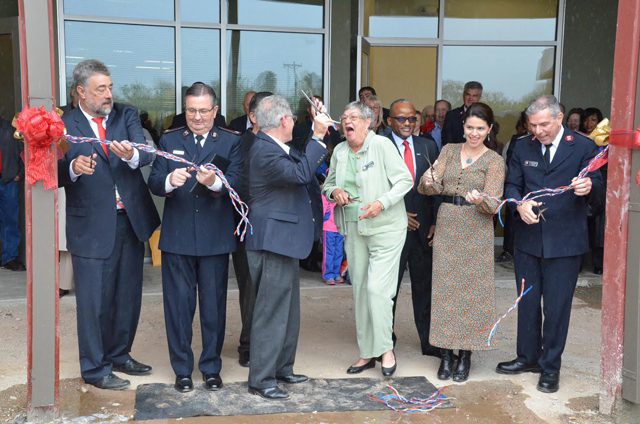New Hospitality House will offer 110 beds and two family apartment units.
By Shawna Kroh –
The Salvation Army in Tucson, Ariz., will open its new family-focused shelter this month as part of a shift to adapt to the city’s changing face of homelessness.
“The demographics have changed,” said Major Clement Leslie, The Salvation Army Tucson area coordinator. “We are seeing more single men with children and women with children.”
According to the 2014 Homelessness in Arizona Annual Report, Pima County—where Tucson lies—contains 15 percent of Arizona’s population and 23 percent of its homeless population. Adults with families make up 11 percent of the county’s adult homeless population, most of them averaging between 25-34 years old.
Built in 1964 as a shelter for single men, the Hospitality House in Tucson will expand to offer 110 beds and two family apartment units. The new 34,000-square-foot facility will open to the public Feb. 23 as a temporary emergency shelter for individuals 18 years of age and older, as well as for homeless parents with children.
“The new Hospitality House shelter will help more men, women and especially families,” Leslie said. “It will provide more programs and services to those in need on the streets of Tucson, such as veterans’ services, special needs and job training.”
The center will offer emergency shelter limited to a seven-night stay with round-the-clock trained staff assistance. The transitional housing component includes an in-house, four-month program, although some may stay up to a year depending on the circumstance. Weekly rent and life skills classes are required of residents, and there are separate areas for veterans and respite care patients.
Other services include lodging, food, showers, laundry, transportation assistance and medical referrals. Case managers are available to help residents on the path to self-sufficiency and independence, with resources for job training and educational services.
“The goal for the new shelter is to open a door of hope to all that come for help,” Leslie said. “We hope that more people will get the much needed assistance to get off the streets and back on their feet.”











